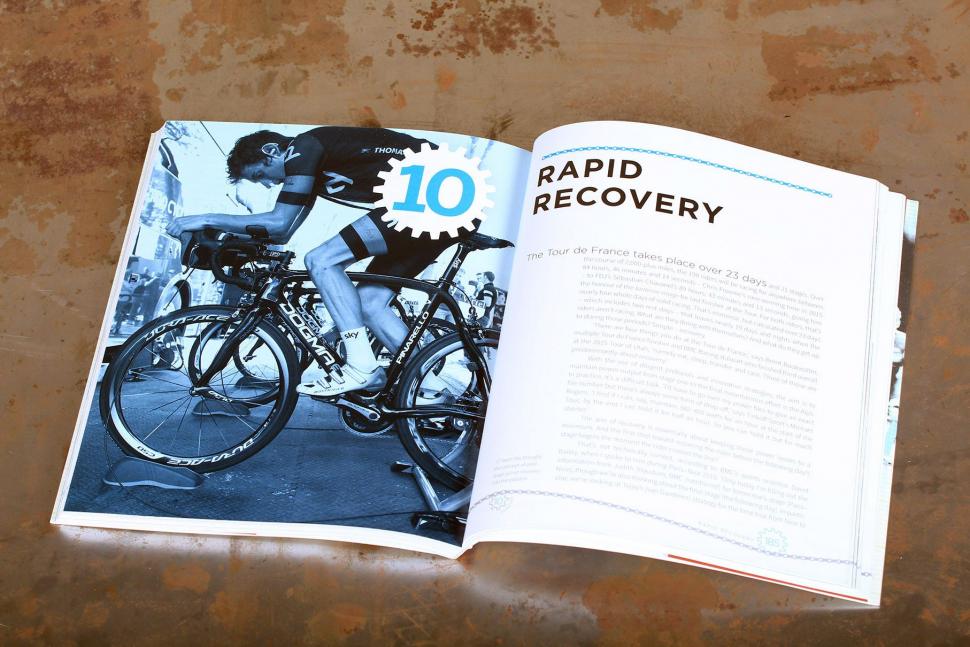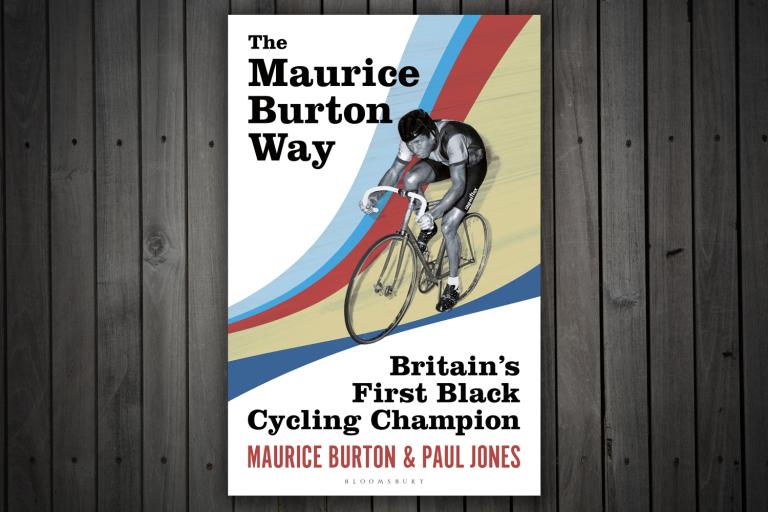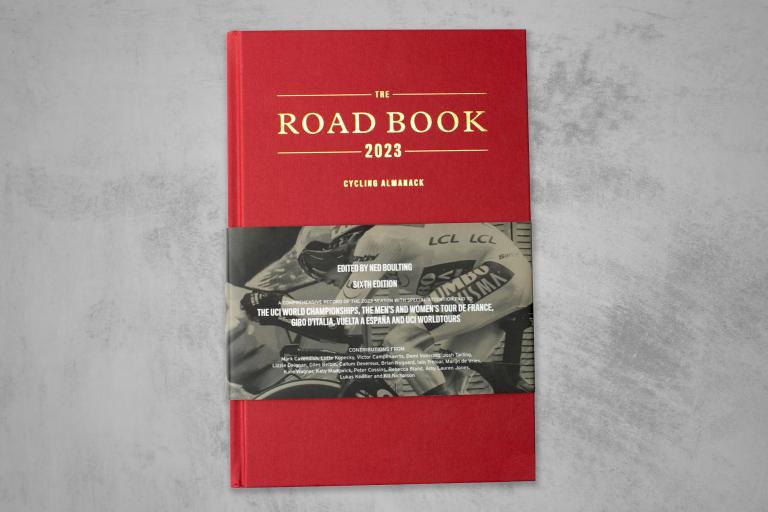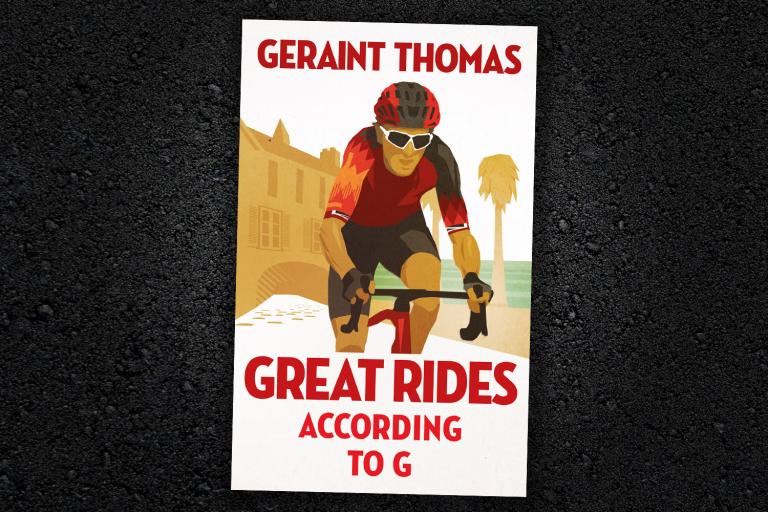- News
- Reviews
- Bikes
- Accessories
- Accessories - misc
- Computer mounts
- Bags
- Bar ends
- Bike bags & cases
- Bottle cages
- Bottles
- Cameras
- Car racks
- Child seats
- Computers
- Glasses
- GPS units
- Helmets
- Lights - front
- Lights - rear
- Lights - sets
- Locks
- Mirrors
- Mudguards
- Racks
- Pumps & CO2 inflators
- Puncture kits
- Reflectives
- Smart watches
- Stands and racks
- Trailers
- Clothing
- Components
- Bar tape & grips
- Bottom brackets
- Brake & gear cables
- Brake & STI levers
- Brake pads & spares
- Brakes
- Cassettes & freewheels
- Chains
- Chainsets & chainrings
- Derailleurs - front
- Derailleurs - rear
- Forks
- Gear levers & shifters
- Groupsets
- Handlebars & extensions
- Headsets
- Hubs
- Inner tubes
- Pedals
- Quick releases & skewers
- Saddles
- Seatposts
- Stems
- Wheels
- Tyres
- Health, fitness and nutrition
- Tools and workshop
- Miscellaneous
- Buyers Guides
- Features
- Forum
- Recommends
- Podcast
review
£16.99
VERDICT:
Great explanation of the science involved in professional races, with plenty you can use to benefit your own cycling
Weight:
646g
Contact:
At road.cc every product is thoroughly tested for as long as it takes to get a proper insight into how well it works. Our reviewers are experienced cyclists that we trust to be objective. While we strive to ensure that opinions expressed are backed up by facts, reviews are by their nature an informed opinion, not a definitive verdict. We don't intentionally try to break anything (except locks) but we do try to look for weak points in any design. The overall score is not just an average of the other scores: it reflects both a product's function and value – with value determined by how a product compares with items of similar spec, quality, and price.
What the road.cc scores meanGood scores are more common than bad, because fortunately good products are more common than bad.
- Exceptional
- Excellent
- Very Good
- Good
- Quite good
- Average
- Not so good
- Poor
- Bad
- Appalling
Is this the first of this year's Tour de France related books? No, although the book does provide a fascinating insight into the scientific approach that is increasingly evident in top level cycle races. Le Tour is just the best-known of them all. Still, it makes for an attention-grabbing title (and probably better search results).
Whether you like it or not, cycle racing is becoming more technical and scientific, especially at the highest level. Team Sky have the reputation for embracing this scientific approach with their now famous pursuit of 'marginal gains', but as this book confirms many other professional teams have a similar approach.
Chris Boardman is quoted as saying, 'I love the idea of racing and training purely on feel ... but I think that for the most part those days are numbered' – and of course he is well-known for spear-heading the scientific approach himself.
Author James Witts has contributed to cycling magazines for many years, and his writing is often the most scientific and technical work in an issue. I always find his articles informative, and they normally require greater concentration than anything else in the magazine. This book is tackling similarly technical matters, and Witts does a good job of making the science accessible and understandable.
Buy The Science of the Tour de France
With this scientific approach playing a part in racing, some knowledge of that science will help your understanding and enjoyment as a spectator. Even better, a lot of the information could be used to improve your own cycling prowess. It does not have to be onerous: just an understanding of something as simple as effective hydration will have a benefit, although there is plenty of more advanced information if you already have the basics right.
It is fitting that the first chapter in the book is all about power and power measurement, a key metric which is now almost universally used by top level cyclists. The cost of power meters means that the technology is starting to trickle down to the rest of us, and this chapter tells you why you might want a power meter on your wish list – although you will soon appreciate that you still need some additional help to make the most of using one.
Just as you might want access to a coach to make effective use of your own data, so the teams have support from an army of boffins to take full advantage of the technology. You often see names like Tim Kerrison, Robbie Ketchell, and Hunter Allen mentioned in technical articles, and Witts has obviously had enviable access to them for this book, as well as to an array of well-known riders.
The result is a lot of real life examples of how the science has been applied by the scientists on the front line. Only recently decisions had to be made about the equipment to use in a hilly Tour de France time trial, and I was amazed by the extent to which a company called Best Bike Split can use predictive modelling to determine the best choices in such cases.
The book gives an example of last year's Paris-Nice Time Trial, where the choice for the Trek Factory Racing team was between the Emonda and the Speed Concept bikes. It turned out that the optimum set-up varied between riders, given their different abilities. There is a lot more to it than just deciding on which rim depth to use.
Think of a recent trend in cycling and it is probably covered here, and the information on offer often has direct relevance to our own choice of equipment – wider tyres and deep section rims for example.
My feeling is that there have been more advances in clothing technology recently than at any time since the introduction of Lycra, with companies such as Rapha, Endura and adidas pushing the boundaries in preparation for special occasions.
>>Read more: Buyer's Guide: Your essential cycling library
One chapter helps to explain the why and the how of clothing developments: some may be just too impractical to ever filter down to regular cyclists, but there are still plenty of other opportunities for 'free speed' available. When performance matters, you may never dress the same way again after reading this.
Disc brakes get a brief mention in a chapter about which development will have the greatest impact on professional cycling. Not only could they have an impact on the shape of rims and wheels, but it is suggested that we will see an increase in bike changes during races. I suspect that there will be a lot more to say about this over the next few years.
Other future developments mentioned include the perception of fatigue and the monitoring of core temperature – and some others that I still don't understand!
I can't imagine that teams will want to reveal any competitive advantage, so we can assume that if they are prepared to discuss something publicly they have already found some even better science to work with. I look forward to Witts explaining it all in a second edition of the book.
Verdict
Great explanation of the science involved in professional races, with plenty you can use to benefit your own cycling
road.cc test report
Make and model: Bloomsbury The Science of The Tour De France, James Witts
Size tested: Paperback
Tell us what the product is for, and who it's aimed at. What do the manufacturers say about it? How does that compare to your own feelings about it?
From Bloomsbury:
James Witts invites you into the world of marginal gains to discover the innovative training techniques, nutrition strategies and cutting-edge gear that are giving today's elite cyclists the competitive advantage.
Find out why Formula One telemetry is key to more bike speed; how power meters dictate training sessions and race strategy; how mannequins, computational fluid dynamics and wind-tunnels are elevating aerodynamics to the next level; why fats and training on water alone are popular in the peloton; and why the future of cycling will involve transcranial brain stimulation and wearable technology.
With contributions from the world's greatest riders, including Marcel Kittel, Peter Sagan and Bauke Mollema, and the teams that work alongside them: Etixx-Quick Step, Team Sky, Tinkoff, Movistar, BMC Racing, Trek-Segafredo and many more. Also meet the teams' sports scientists, coaches, nutritionists and chefs, who reveal the pioneering science that separates Contador and Cancellara from the recreational rider.
To win the Tour de France takes stamina, speed, strength... and science.
Tell us some more about the technical aspects of the product?
Title: The Science of the Tour de France
Author: James Witts
Publisher: Bloomsbury Sport
Date: June 2016
Format: Paperback
Pages: 240
ISBN: 9781472921703
Price: £16.99
Rate the product for value:
5/10
This score is for full retail price; however, there is a 25% discount when buying direct from Bloombury at present, which helps - but not as much as the 71% discount on Amazon, giving a price of only £4.99. Bonkers.
Tell us what you particularly liked about the product
It brings together a lot of information from disparate sources into one excellent package.
Did you enjoy using the product? Yes
Would you consider buying the product? Yes
Would you recommend the product to a friend? Yes
About the tester
Age: 55
I usually ride: My best bike is:
I've been riding for: Over 20 years I ride: Every day I would class myself as: Expert
I regularly do the following types of riding: commuting, touring, club rides, sportives, general fitness riding,











Are you looking at it from the car's point of view or the cyclist's?
Thank you for the clarification.
Me too - at anything, really.
If there is already an existing structure that would make a suitable bike shelter with some minor modifications, then I can understand wanting to...
On average it's between 1 and 5 close passes on 15 daily kms.
"every other urban hipster is wearing one of these just for the style points"...
Pretty sure the Carradice Odyssey didn't exist when I got my Wizard Works Shazam - they had the traditional cotton duck bags or the Super-C. Wizard...
Charged with careless driving.
what about super round wheels? can they be kept exclusive?
Here's an argument for firearms. If he hadn't had a shotgun he would probably have tried with the car unneccesarily mahoosive truck a second time,...